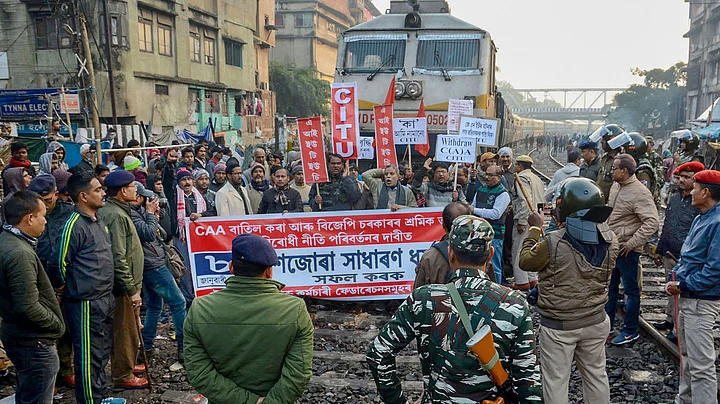Ten major trade unions, on Wednesday 8 January, called for a nationwide strike against the government’s ‘anti-people’ policies, the fourth such strike in the last five years under the Narendra Modi-led government.
The 8 January strike, however, was not restricted to only trade unions. This was the first such strike that saw support from different ends, galvanising a joint movement of people, particularly students, who registered their protests on a range of issues from the Citizenship Amendment Act to the attack on JNU students on 5 January.
Students from across universities in Delhi, including Delhi University, JNU, Jamia Millia Islamia, Ambedkar University and IIT joined the bandh.
According to a Business Standard report, around 30 students from Ambedkar University stood with the leaders from 10 unions. The Bahadur Shah Zafar Marg in New Delhi for blocked by the protesters for at least an hour in the morning of 8 January.
Apart from that, the report said that thousands of DU students also came together for a two-kolimetre march in the North Campus of the university. Even St. Stephens students, who are known to not be so active in movements, assembled in the college’s lawns and read out the preamble of the Constitution.
The report also quoted the All India Trade Union Congress’ President Amarjeet Kaur as saying that the strike was a huge success, with more than 250 million people taking part across the country.
On the other hand, Chief Labour Commissioner was quoted in the BS report as saying that the strike was rather unsuccessful, it saw poor participation till evening. He said it saw a participation of only 15 percent on an average. While 55 percent workers were absent from work in the baking sector, only 6 percent of the telecom staff skipped work, the Business Standard report said.
Banking services took a hit, with several ATMs going dry by the evening as people rushed for cash withdrawals.
Around 12,000 workmen staff of the RBI from across the country went on strike. It affected various departments including currency management, government and public accounts.
(With inputs from Business Standard)
(At The Quint, we question everything. Play an active role in shaping our journalism by becoming a member today.)
